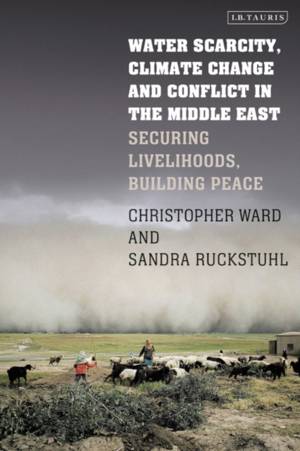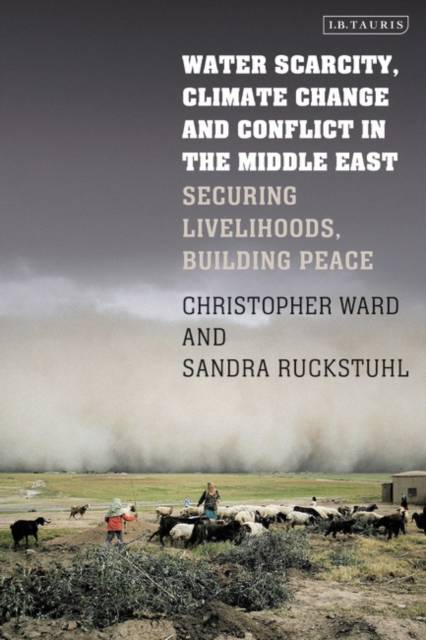
- Afhalen na 1 uur in een winkel met voorraad
- Gratis thuislevering in België vanaf € 30
- Ruim aanbod met 7 miljoen producten
- Afhalen na 1 uur in een winkel met voorraad
- Gratis thuislevering in België vanaf € 30
- Ruim aanbod met 7 miljoen producten
Zoeken
Water Scarcity, Climate Change and Conflict in the Middle East
Securing Livelihoods, Building Peace
Christopher Ward, Sandra Ruckstuhl
€ 79,95
+ 159 punten
Uitvoering
Omschrijving
The countries that make up the MENA region display wide diversity. One of the poorest countries in the world sits alongside two of the wealthiest, whilst the region's natural resources range from immeasurable oil and gas reserves to some of the scantiest natural endowments anywhere in the world. Yet through this diversity runs a common thread: water scarcity. Now, through the impact of human development and climate change, the water resource itself is changing, bringing new risks and increasing the vulnerability of all those dependent on water. Chris Ward and Sandra Ruckstuhl assess the increased challenges now facing the countries of the region, placing particular emphasis on water scarcity and the resultant risks to livelihoods, food security and the environment. They evaluate the risks and reality of climate change in the region, and offer an assessment of the vulnerability of agriculture and livelihoods. In a final section, they explore the options for responding to the new challenges, including policy, institutional, economic and technical measures.
Specificaties
Betrokkenen
- Auteur(s):
- Uitgeverij:
Inhoud
- Aantal bladzijden:
- 368
- Taal:
- Engels
- Reeks:
Eigenschappen
- Productcode (EAN):
- 9780755601073
- Verschijningsdatum:
- 26/12/2019
- Uitvoering:
- Paperback
- Formaat:
- Trade paperback (VS)
- Afmetingen:
- 156 mm x 234 mm
- Gewicht:
- 508 g

Alleen bij Standaard Boekhandel
+ 159 punten op je klantenkaart van Standaard Boekhandel
Beoordelingen
We publiceren alleen reviews die voldoen aan de voorwaarden voor reviews. Bekijk onze voorwaarden voor reviews.











